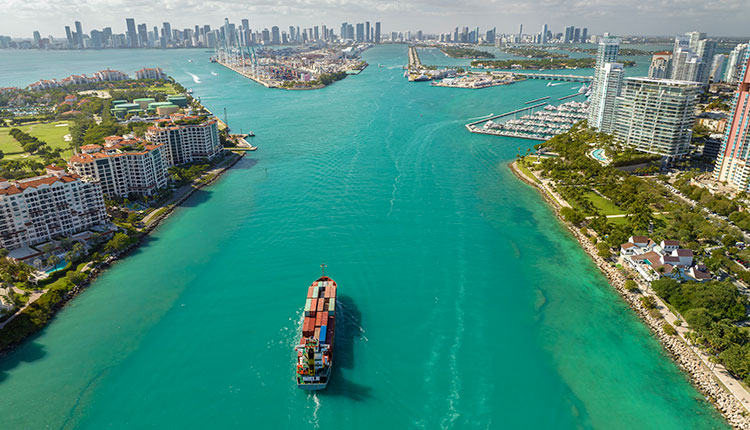Ports reopen as strike comes to tentative agreement |
| By Edited by Megan Smalley |
Ports reopen as strike comes to tentative agreement Dockworkers have returned to work after their union reached a deal to suspend a labor strike at all U.S. East and Gulf Coast container ports. A labor strike was initiated Oct. 1 after the six-year master contract between the International Longshoremen’s Association (ILA) and the United States Maritime Alliance (USMX) expired Sept. 30. ILA says the groups have reached a tentative agreement on wages and have agreed to extend their master contract until Jan. 15, 2025, when they will resume negotiations. Under the tentative agreement, ports improved wage offers from about 50% over six years to 62% over six years, according to an Associated Press (AP) report. The unions will need to continue to discuss automation of ports, which will lead to fewer jobs, according to the article. William Brucher, an assistant professor of labor studies and employment relations at Rutgers University, tells AP that it will likely take a couple of days for ports to restart machinery and for ships waiting at sea to get berth, but he notes that consumers aren’t likely to see shortages because the strike was relatively short. The National Retail Federation (NRF) has also released a statement from NRF President and CEO Matthew Shay following the announcement on the tentative wage agreement and short-term contract extension between the ILA and USMX. “The decision to end the current strike and allow the East and Gulf coast ports to reopen is good news for the nation’s economy,” says Shay. “It is critically important that the International Longshoremen’s Association and United States Maritime Alliance work diligently and in good faith to reach a fair, final agreement before the extension expires. The sooner they reach a deal, the better for all American families.” On Oct. 2, NRF had led a coalition of nearly 300 industry trade associations in sending a letter to President Biden, calling on him to use “any and all authority” to end the strike. NRF says it will continue to advocate for policies and solutions that ensure supply chain resiliency. |
